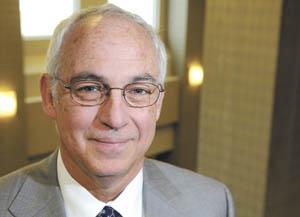Neurosurgeon finds a new home in Bowling Green
Published 12:00 am Monday, March 24, 2008

- Miranda Pederson/Daily NewsNeurosurgeon Dr. Charles Wood, who works at Greenview Regional Hospital, recently moved to Bowling Green from Georgia.
Dr. Charles Wood credits his children with bringing him to Bowling Green.
Formerly a neurosurgeon at Gwinnett Medical Center in Gwinnett County, Ga. – one of the fastest growing counties in the country and now home to more than 750,000 residents – Wood’s career took a lot of time away from his family.
“I worked at one of the busiest trauma hospitals in Georgia. There was an average of three neurosurgeons on shift at a time. From the time I was on call, I was never at home,” he said. “I never saw my children awake. I had to be at the hospital by 6 or 7 a.m., and I was in surgery most of those days.”
Then Wood – the father of three sons and two daughters – got a wake-up call from one of his daughters. She had written a note telling him how much she missed seeing him and how she didn’t want anything to happen to him. She pleaded, “Would you please do something different with your life?”
That note, combined with the increasing expense of living in Georgia, prompted Wood and his wife, Marisa, to consider moving the family to a smaller place. They visited Bowling Green last summer and liked it, and now Wood is a neurosurgeon with Southern Kentucky Neurosurgical Associates in the Physicians Specialty Center connected to Greenview Regional Hospital. He has been there for about two weeks.
“I wanted to come to a community where I can fit in and provide a service,” he said. “I’m coming in to help and work alongside people and raise my children in a beautiful place.”
As a neurosurgeon, Wood deals with various brain and spinal problems, including back and neck pain, disc disorders and brain tumors. His specialty is doing minimally invasive surgery, which he can do through a small opening.
“It results in a shorter time in the hospital, less blood loss, less complications, and the patients return to work quicker,” he said.
Wood grew up on a small farm near Amarillo, Texas. He knew early in life that he didn’t want to be a farmer.
“I loved my grandparents, but I hated farm life,” he said, laughing.
But he hadn’t planned on becoming a doctor, either.
“I had previously associated them with pain and shots,” he said. “It was probably the last on the list of things I wanted to do.”
That changed after Wood’s brother was badly injured while playing football.
“I got to see what doctors did firsthand. My brother had a good doctor who explained his injuries,” he said. “It’s like having a good teacher who changes the way you think of school. I have tried to emulate that man all my life.”
Wood graduated from Georgia Institute of Technology with a bachelor’s degree in chemistry. He went to medical school at Emory University and received neurology training at the Medical College of Virginia in Richmond, Va. He chose to study neurology because of the mysterious aspects of the brain.
“I wanted to be intrigued by what I did with my career,” he said. “I thought the brain was the final frontier in medicine. I still do.”
He also strives to ease patients’ fears so they won’t be afraid of doctors like he was.
“When you see a brain surgeon, you’re going to be scared. My first job is to take away some of that fear,” he said. “If I can get their fear under control, then I can be an effective doctor.”
After his father sent him an article about Gwinnett County being a fast-growing county, Wood decided to move there. He finds it ironic that the county’s growth rate contributed to his leaving the hospital after 24 years of working there.
“It’s challenging to leave a job, (but) the people here in Bowling Green have made it easy,” he said. “I have met a lot of nice people who have embraced me.”
Wood and his wife, a nurse, go with teams each year on mission trips to Haiti, where patients often walk several miles just to see the doctors. He finds the work he does on the trips as rewarding as what he does here in the United States.
“I learn something from almost every patient,” he said, adding “it may not have anything to do with medicine.”



